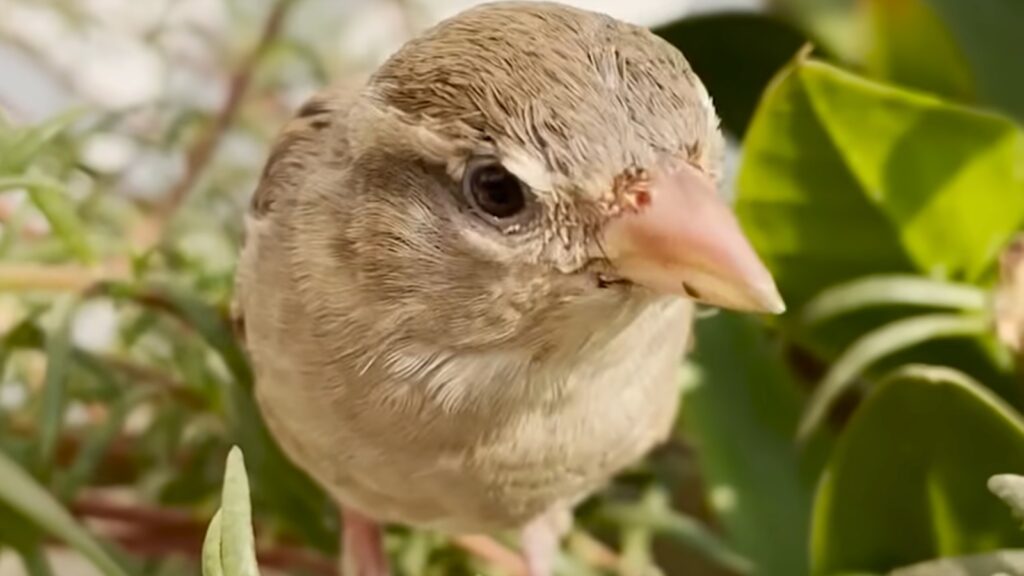Rescuing a lost baby bird is a story straight out of a fairytale. The Dodo regularly features stories of daring animal rescues, both to warm your heart and educate you in case you come across a similar situation.
I make no bones about how important it is to care about the welfare of birds. As a birdwatcher, I want to ensure that my lifestyle doesn’t impede on these beautiful animals’ ability to thrive.
That said, good intentions don’t automatically equal good action. When it comes to rescuing an animal, you have to make sure you don’t indirectly make their lives worse down the road.
The Dodo recently released a video called ‘Tiny Rescue Bird Follows Her Mom Around Like A Dog’. Let’s take a look at this heartwarming story to learn more about bird rescue and what you should do if you see a bird who needs help.
Key Takeaways
- When you find a baby bird, your first order of business should be to find an animal professional. A veterinarian, animal control services, or animal rescue are a few titles you can call up.
- If the bird is too socialized around people, you won’t be able to release it back into the wild. This is a less-than-ideal scenario, so try to find an animal professional as soon as possible. If you can’t, you’ll need to commit to watching over and taking care of the animal 100%.
- Life sometimes doesn’t give us easy answers. Sometimes doing nothing is the right thing, while other times you need to intervene and do your best.

Dr. Manvi found this little baby bird on the side of the road, alone and confused. Baby birds can become separated for a number of reasons, such as falling out of the nest or attempting to flee a predator while the parent is gone.
They most certainly can’t defend themselves, so she did the only logical thing: ask for help.
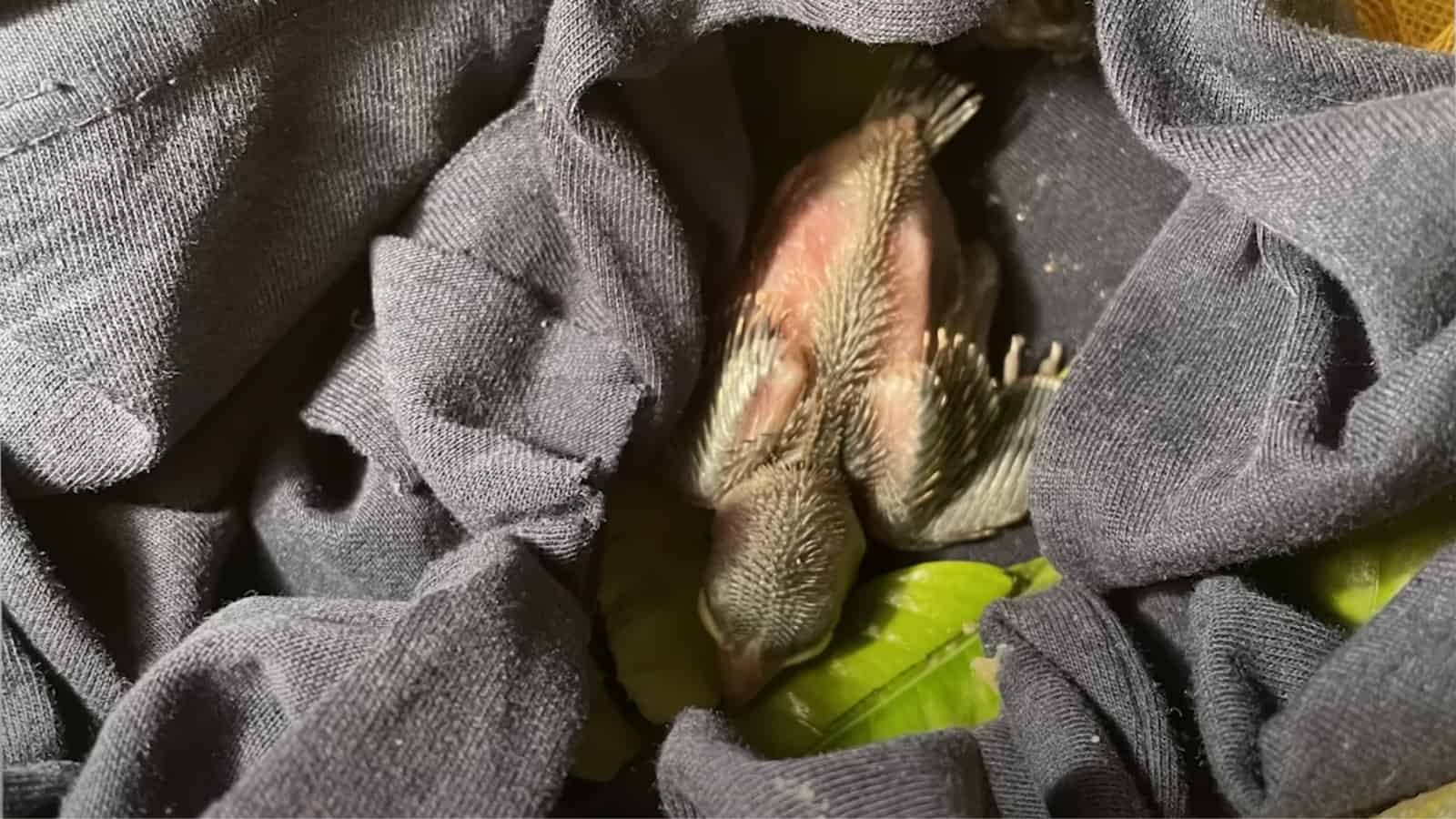
She attempted to contact several veterinarians in the area but to no avail. Right off the bat, she did the correct thing – immediately attempting to find professional animal services.
While a little medical knowledge translates between humans and animals, there are also huge differences. Even the most basic bird biology can be incompatible with the medication we use or the food we eat.
For example, birds can’t eat popular foods like avocado, chocolate, or dairy. They’re also very sensitive to chemicals like perfume or cigarette smoke.
If you ever find an injured bird or a lost baby bird, the safest course of action is to reach out to either a veterinarian or animal rescue services. If you have no luck, try to reach out to animal control – they can intervene and relocate animals such as stray dogs, cats, and birds.
The biggest reason it’s unsafe for everyday people to handle animals is because you could contract a disease or accidentally expose the animal to harm.

Dr. Manvi named the baby Muffin, and then proceeded to do some study on birds to learn how to feed and take care of her. While professional services are still ideal, this is a tricky situation to be in.
I can’t imagine any birder here would find it easy to put the baby bird back in the wild, right?
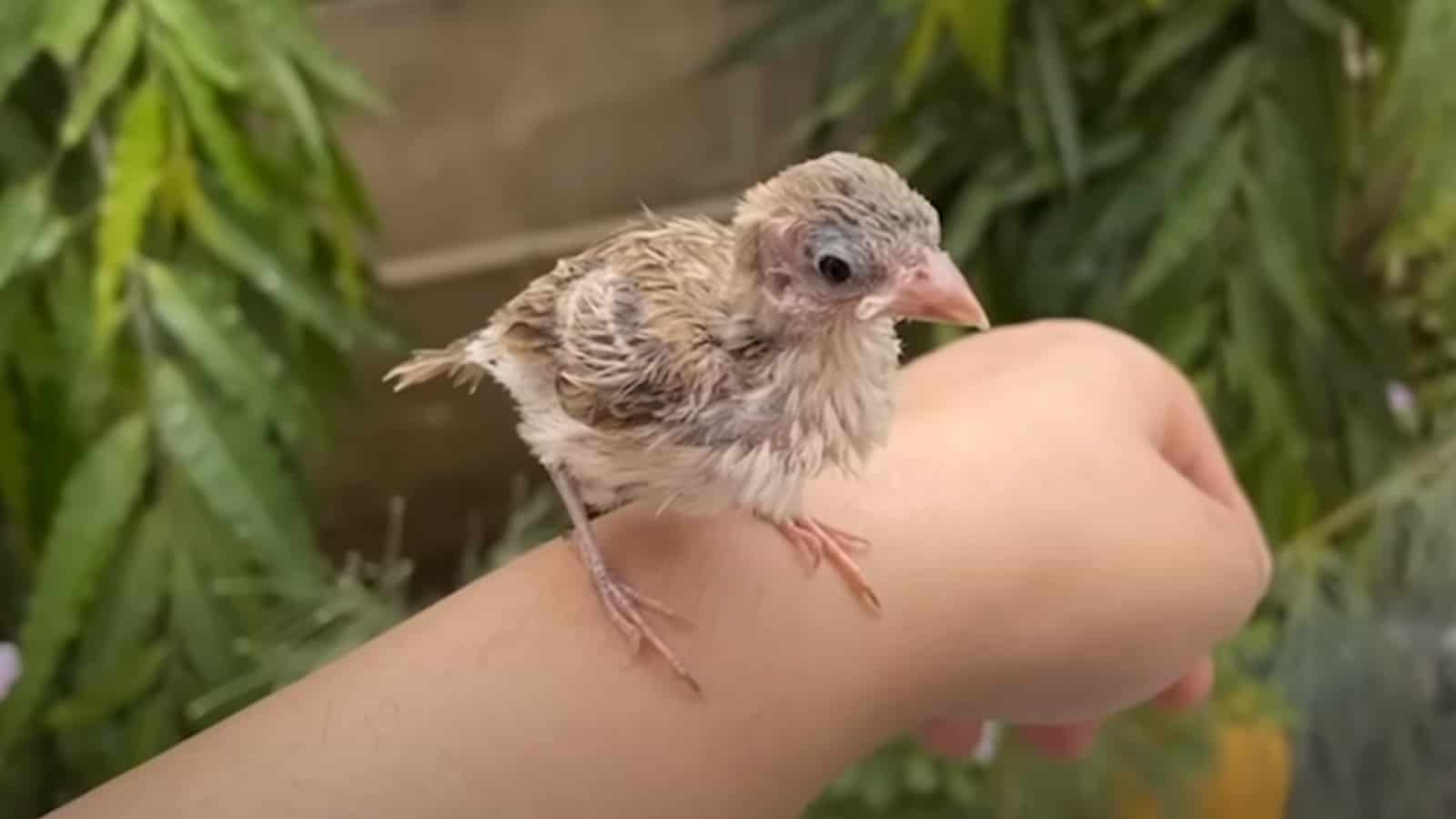
Muffin continued to grow little by little, showing some impressive plumage and what appeared to be a good weight. According to VCA Animal Hospitals, newborn baby birds need to be fed every three to four hours before their eyes open, and then every five hours or so after they start to see.
Once they start growing their feathers, they’ll only need to be fed two or three times per day. It’s a delicate balance giving them just the right amount of food so they’re not overfed or underfed, so Dr. Manvi clearly did a good job here.

While this tip doesn’t apply much to this situation since she couldn’t find an animal professional, it’s important to note that wild animals shouldn’t be socialized around people. If you intend to release them later, they need to maintain a healthy caution of humans so they can stay around their own kind.
With that out of the way, Dr. Manvi had no intention of re-releasing Muffin, so her friendly nature is a positive trait. If humans are the only ones she’s going to be around the majority of the time, it’s good to see she’s calm and playful.
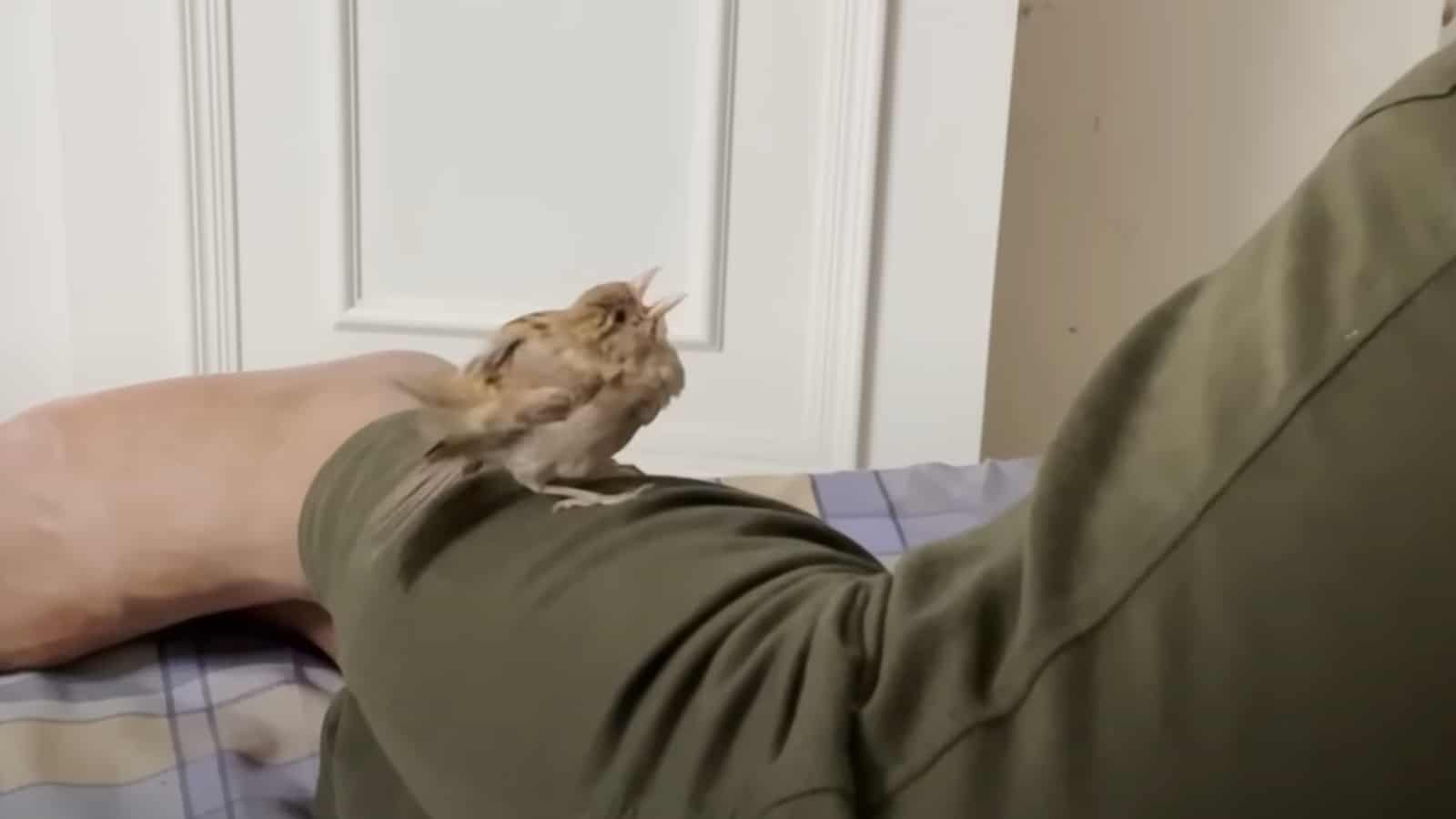
It’s now I realize what a bittersweet story this is. On one hand, Muffin will no longer be able to socialize with her own kind since her entire upbringing has been around humans.
On the other hand, she might’ve faced a far worse fate if Dr. Manvi never found her on the side of the road. It’s stories like these that get me reflecting on the unpredictability in life and all the unique turns it can take.

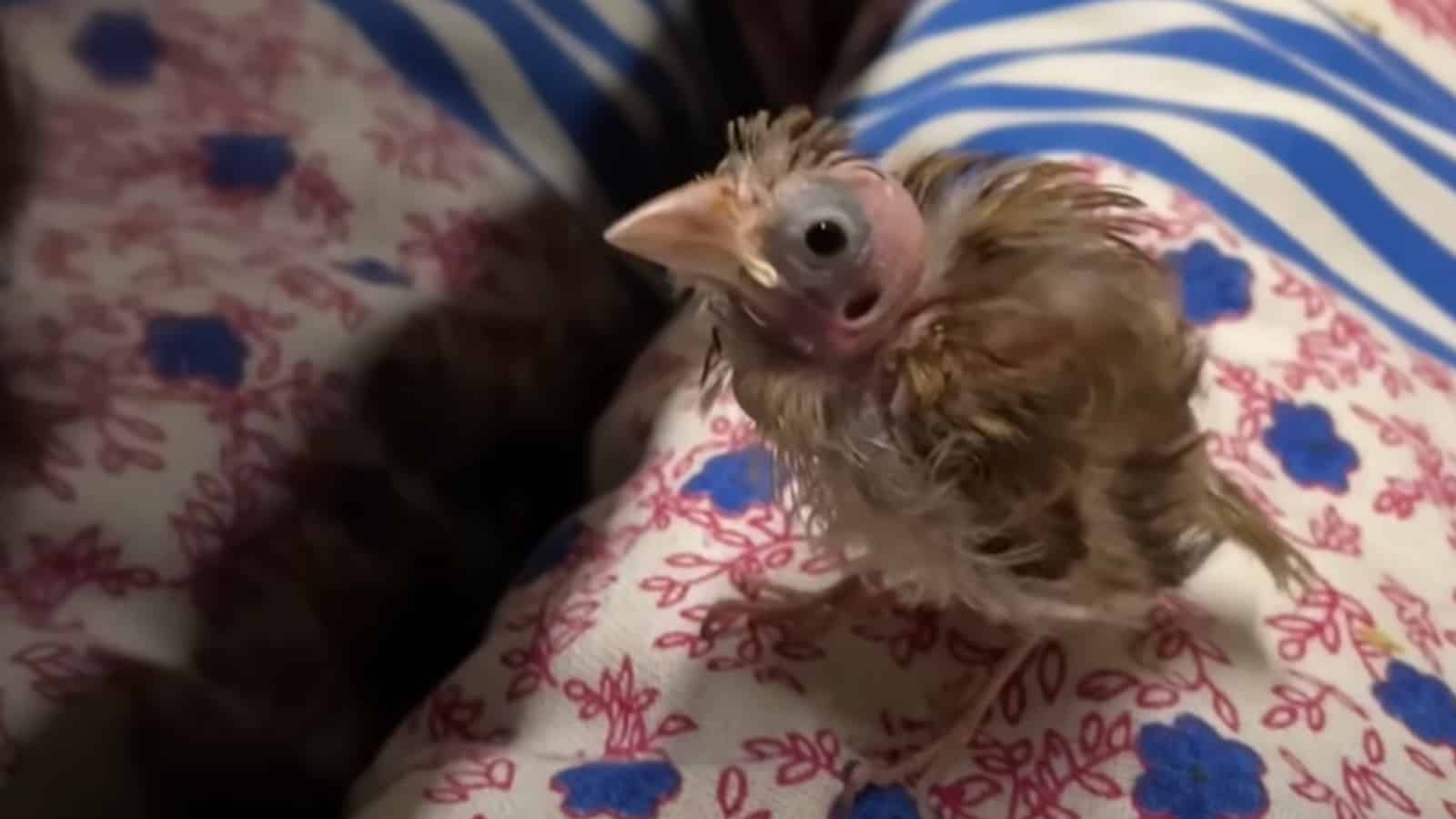
The video takes a sudden painful turn when it’s revealed Muffin got badly bitten by a pet dog. The stress and pain of the incident caused her to lose half of her feathers.
This incident is a big reason why I emphasize the importance of contacting wildlife specialists if you encounter an orphaned baby bird. When birds lose their natural fear of humans, they also lose their natural fear of domesticated animals.
Muffin likely saw humans as being very comfortable with dogs, so she didn’t understand the dog would view her as a prey or toy.
Of course, Dr. Manvi did try to find animal services at first — I haven’t forgotten that! This part is just an important reminder of the risk and responsibility you have if you have a captive bird.

It’s important to mention that, if you’re taking care of a wild bird, you need to replicate its diet as close as possible. Many human foods can be toxic or just plain unhealthy for birds (such as the bowl of ramen above).
Better foods for a growing sparrow that wouldn’t be hard to find include:
- Oats
- Corn
- Buckwheat
- Mealworms

Fortunately, Muffin made a full recovery. She grew her feathers back and returned to her usual playful and energetic self.
It’s scary seeing a pet get hurt or sick, so her practical approach to Muffin’s recovery is a beautiful thing to witness. Keeping your head is essential during a crisis is essential — panic will just stress out a pet further and make it even harder for them to bounce back.
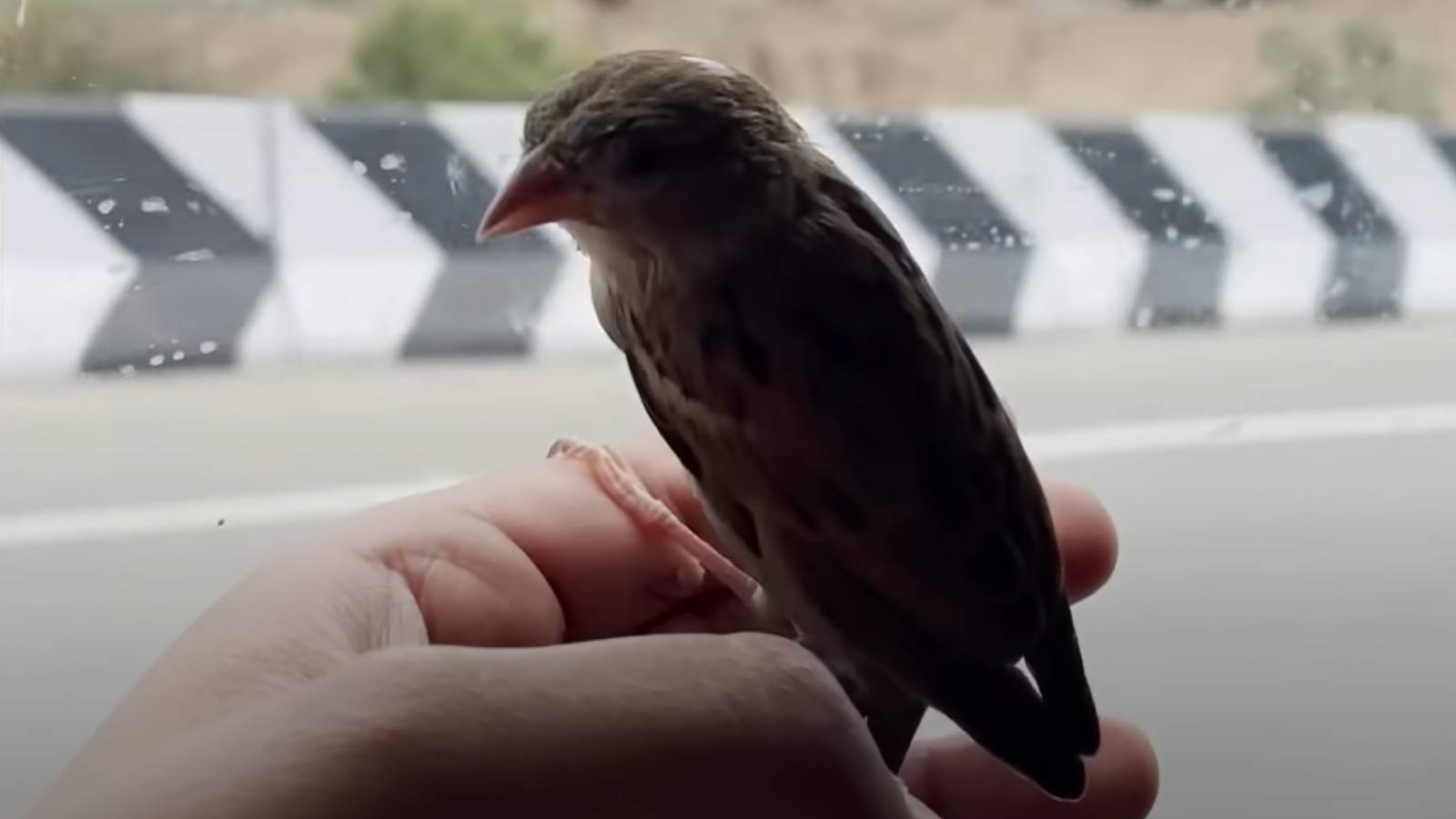
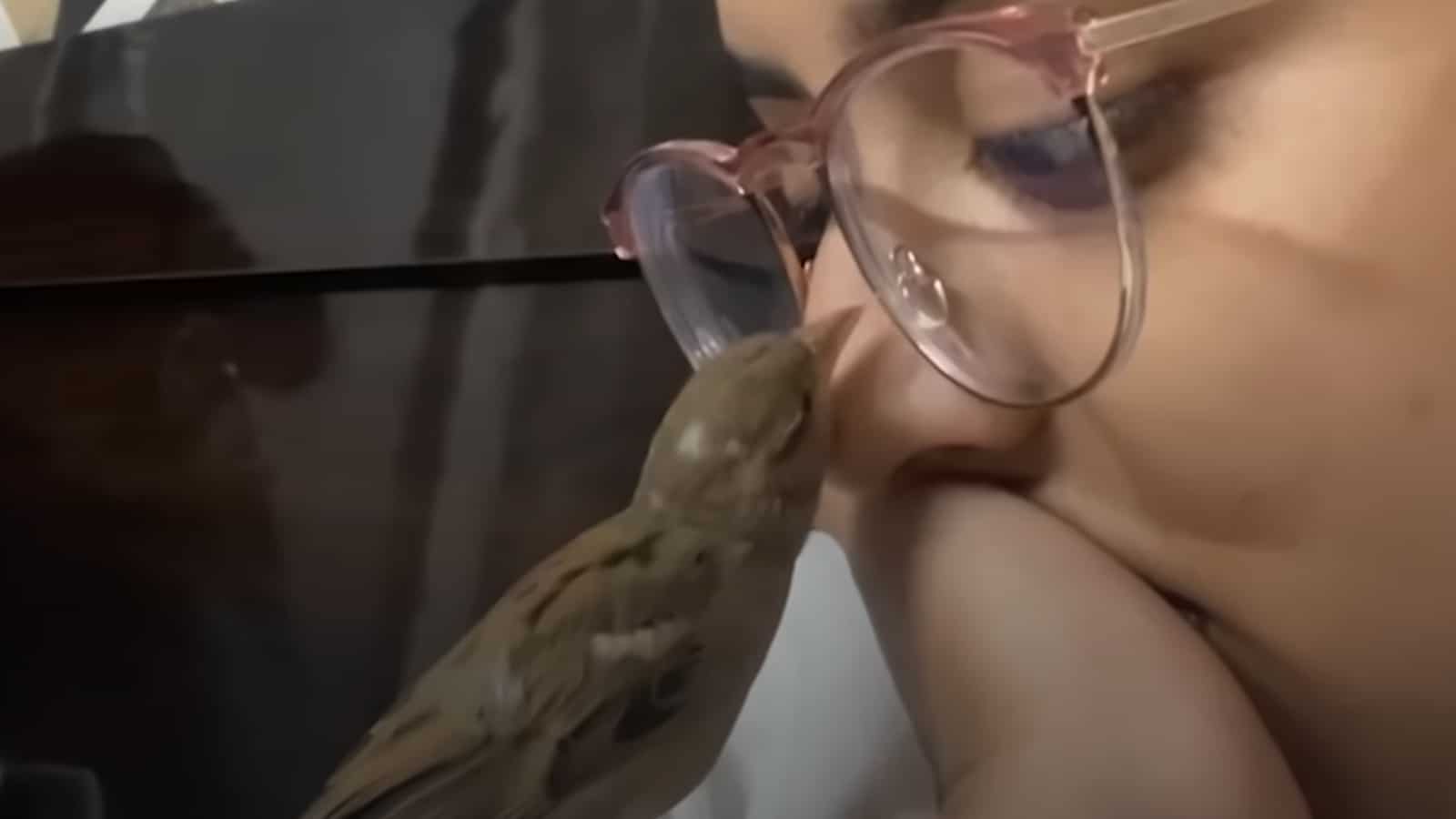
Something I really admire about Dr. Manvi is how deeply she commits to her special bond. She knows that taking care of a wild bird isn’t going to be a walk in the park (even though she literally takes Muffin on walks in the park!).
She can’t just leave the bird at home like a cat or a house-trained dog. A unique pet like a sparrow needs unique treatment, so that means adapting her lifestyle to the bird’s needs.
She takes the bird on trips, plays games with her, and socializes her with the family. In other words, she went all in — that’s seriously impressive.
Taking Care of a Wild Bird Is a Commitment, Not a Hobby
Life sometimes throws curveballs our way. No matter how much you learn about birdwatching or bird conservation, you’ll never have all the answers.
While your first course of action upon seeing a lost baby bird should be to contact animal services, sometimes you don’t have that option. Since baby birds are completely defenseless, it’s understandable — and noble — to take care of them instead.
If you ever end up in this situation in the future, I recommend still trying to find an animal professional eventually. In the meantime, study up on what the bird species eats and keep them safe from other animals.
Want to see other videos we’ve reacted to on WildBirdScoop? Check out our thoughts below:

